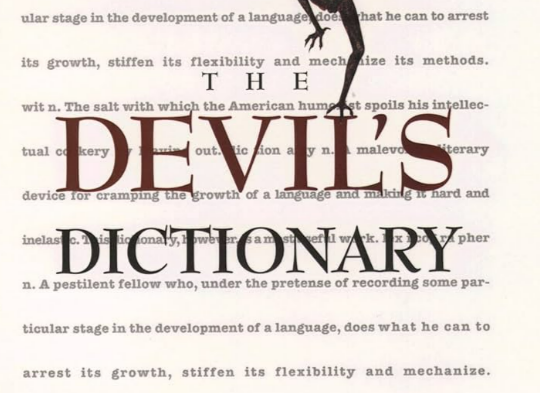Chapter C
byChapter C opens with Bierce’s knack for blending satire and sharp observation, starting with Caaba, a stone linked to Abraham that embodies religious ambiguity and human folly. By connecting it to the story of Babel, Bierce hints that divine worship often conceals confusion and vanity, turning sacred symbols into reminders of human error. This sets the stage for a series of definitions that unravel accepted meanings to reveal underlying absurdities in culture and belief. His humor highlights how even revered objects or stories can reflect human weakness more than strength. The entry invites readers to question the foundations of faith and tradition masked as certainty.
Cabbage follows as a clever allegory, describing a fictional prince who placed vegetables alongside ministers in his council to placate unrest, symbolizing the absurdity of political authority. Bierce exposes how leadership can be reduced to spectacle and farce, with power wielded arbitrarily rather than wisely. The vegetable’s fate—beheading alongside politicians—emphasizes the disposability of those in governance. This sharp satire not only mocks rulers but also the public’s acceptance of absurd governance. Through humor, Bierce critiques the cyclical nature of power and incompetence in societal institutions.
More personal and emotional terms are given a cynical twist, such as Calamity, which Bierce defines as the inevitable force disrupting human plans, indifferent to individuals’ desires. Callous is described as the stoic hardness people develop to survive emotional hardships, humorously illustrated by a philosopher’s indifferent reaction to friends and foes alike. These definitions underscore the tension between human vulnerability and the necessity of emotional armor. Bierce’s wit here reflects the often uncomfortable balance people strike between feeling deeply and protecting themselves from pain.
Entries like Cannibal and Cannon highlight humanity’s darker instincts and aggressive behaviors with biting humor. The Cannibal is more than a mere eater of flesh—it becomes a symbol of society’s inherent self-destructive tendencies. Cannon, a tool of war, represents humanity’s fascination with violence and its consequences, underscoring how conflict is both glorified and lamented. Bierce uses these terms to explore the paradox of human nature: the capacity for both creation and destruction. His approach exposes how civilization can be simultaneously advanced and savage.
The exploration continues with reflections on life stages and belief systems. Childhood is depicted not as innocence but as a fleeting state before inevitable disillusionment, while Christian is redefined as one who holds others to moral standards while exempting themselves. These entries question the sincerity and practicality of social roles and religious identities. Bierce implies that societal expectations often mask contradictions and hypocrisy. By reframing these concepts, he urges readers to rethink accepted narratives around growth and morality.
In the more poetic vein, Carmelite offers a narrative about a friar and Death, blending humor and mortality to highlight life’s inevitable end. Bierce’s storytelling contrasts the solemnity of religion with the irony of human fate. His use of verse captures the absurdity of mortality, wrapped in cultural rituals. This entry exemplifies his ability to intertwine humor with profound truths about existence and death.
Bierce’s skepticism extends to social structures like Circuit, Census, and Cemetery, where he uses metaphor to question the value and meaning assigned to institutions. These terms symbolize the routines and bureaucracies that define human organization but often disconnect individuals from authentic experience. His critiques expose how societal mechanisms can become hollow, serving form over function. Through this, he invites readers to scrutinize the institutions that shape daily life, encouraging a more conscious engagement with social norms.
The chapter culminates in complex ideas such as Commerce and Compromise, portrayed as inherently contradictory. Commerce is shown as a pursuit driven by self-interest disguised as mutual benefit, while Compromise is framed as a negotiation where everyone loses a little, often to preserve appearances. Bierce’s sharp definitions reveal the paradoxes within economic and social exchanges. The term Congress embodies bureaucratic inefficiency, symbolizing the stagnation and self-interest that can plague governance. These critiques blend humor with truth, challenging readers to reconsider the systems they take for granted.
Through each definition, Bierce crafts a world where language serves not only to describe but to expose human folly and societal contradictions. His wit dismantles the polished facades of culture, revealing the complex and often uncomfortable realities beneath. The chapter invites readers to laugh but also to think deeply about the meanings they accept. In this way, The Devil’s Dictionary becomes more than a collection of wordplays—it serves as a powerful lens for examining the human condition and the social fabric that binds it.

